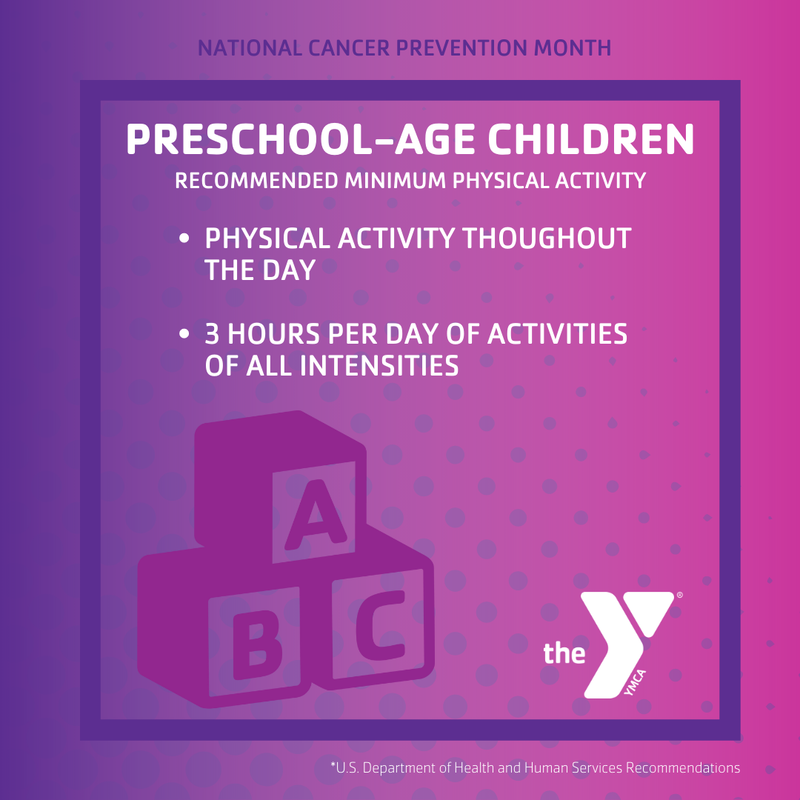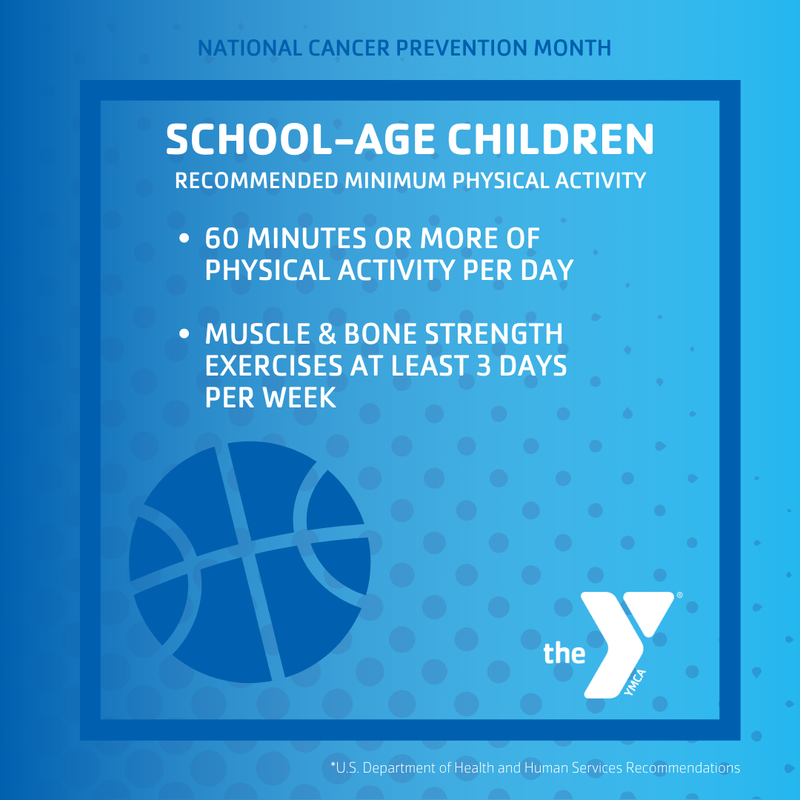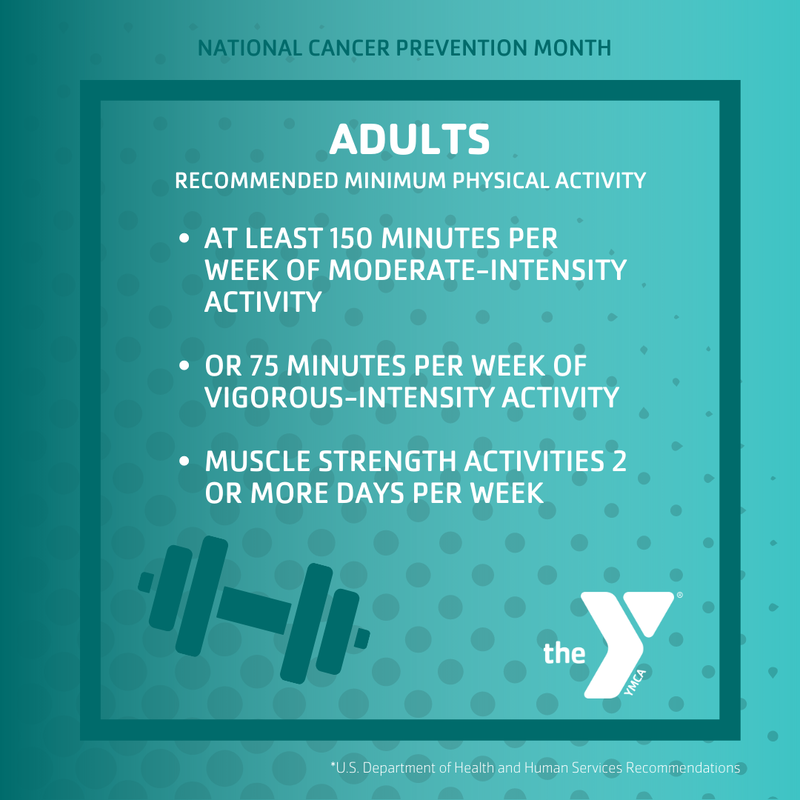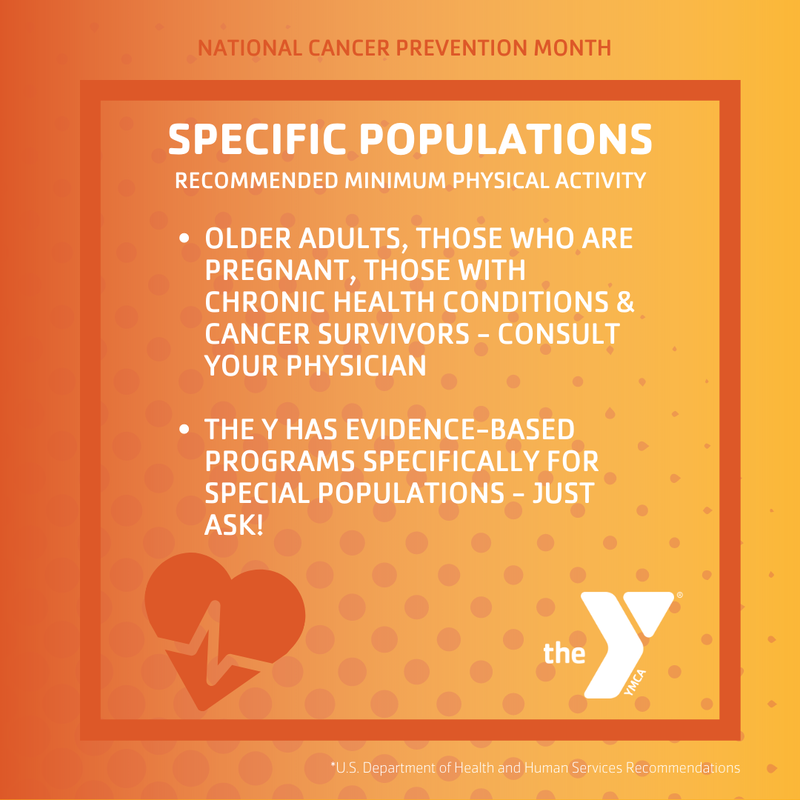|
As spring turns into summer, the Shiawassee Family YMCA wants to share four ways that summer camp can help give your child the experience of a lifetime.
Find Your Adventure Summer is a time for kids to explore and expand the limits of their imagination. At Camp Shiawassee, every day is a new adventure! Campers will travel through time during Time Traveler's week, explore Camp's ecosystem during Mad Science week, and go on an Amazing Race during Best of the Best week! Find Your Spark At Camp Shiawassee, kids discover hidden talents and passions they never knew they had. They may find they have amazing juggling skills during Circus week or mad fort building skills during Inside Outside Upside Down week or realize that they excel at water balloon dodgeball during Let's Get Wet week. Find Your Circle Camp Shiawassee provides kids with an experience they will never forget. Kids come away with new skills, confidence and friendships that broaden their perspectives and strengthen their character. Campers will work together to complete a quest during Imaginarium week and become a superhero that they invent during Movin' & Groovin' Superheroes week. Find Your Friends At Camp Shiawassee, kids will make new friends and have tons of fun as they explore new adventures each day! They'll make up Oompa-Loompa skits with their friends during Willy Wonka week and play the best old-fashioned games during Tom & Huck week. Find Your Y Find your adventure. Find your spark. Find your circle. Find your Friend. Find your Y. Visit shiawasseeymca.org to learn more or call us at 989-725-8136 to enroll your child in summer camp today!
0 Comments
Throughout April, we've addressed the importance of understanding the Y's abuse prevention policies, recognizing red flags and boundary violations and how to talk with your children about abuse. Now, it's important that all parents and caregivers know how to respond to boundary violations and warning signs if children tell you about abuse. At the Y, we are mandated reporters, so we have procedures in place for responding and reporting suspected abuse. As a parent, you can follow these 5 steps:
Many parents and caregivers find speaking to their children about abuse to be uncomfortable. Framing these conversations around other safety conversations you have may help you work through some of that uncomfortableness. Below you'll find age-appropriate ways to talk to your child about boundaries and preventing abuse.
Young Children Parents can start these conversations simply by ensuring young children know the correct names for their body parts. Children who know the proper names are able to talk more clearly to parents or other adults if something inappropriate happens. As you're teaching body parent names, you can help your child learn that parts of their body are private and that only their parents/caregivers can see them. Don't forget to note that doctors may see them naked but only because you're there with the doctor! Teens As children grow older, it's key to keep lines of conversation open so that they feel comfortable talking to parents or trusted adults if something happens to them or a friend. Talk to your teens about their friends, the other adults in their lives, social media and electronic communication. They need to know to not accept requests from people they don't know, how to respond if someone (even a friend) asks them to send nude photos and that conversations online are never truly private. Continue the conversations about boundaries and what boundary violations look and feel like. Let them know that you are there to listen and support them. At the Y, creating safe spaces for youth to learn, grow and thrive is our top priority. Kids need a safe space now more than ever, and we take pride in the measures we've taken to help keep your kids safe. Here are some important tips for parents to know as we work together to keep kids safe from abuse.
Offenders seek three things in order to abuse: access, privacy and control. What does this mean for a parent?
By Dawn Jackson Blatner, RDN in partnership with Eggland's Best
Post a snack list on fridge Have a list posted on the fridge of available and healthy snacks so it's more likely everyone will choose those nourishing options when hunger hits. Snacks that have protein + produce are great options such as an Eggland's Best hard-cooked egg + cucumbers, nut butter + celery, cheese stick + apple, edamame + orange slices, or yogurt + berries. Play "Try It Tuesday" Trying new foods is such a great way to get a wide variety of nutrition and create more adventurous eaters. Make Tuesday the day each week to open everyone's mind & palate to try a new snack, a new side dish, a new recipe, or even just take a bite of a new fruit or veggie. Team up in the kitchen Cooking together makes it feel more fun and when kids play a role in prepping, they are more likely to enjoy the meal. Teaching kids how to cook is a valuable life skill that you can start teaching at any age, it's never too early or late. And bonus, the better kids get in the kitchen, the less work it ends up being for parents! Count the color on your plate One of the best ways to eat better is by adding more colorful fruits & veggies to meals and snacks. So have kids count the colors on their plate and the more colors the better. Take it to the next level and create a family chart to track the colors eaten through the week or month! Learn the superpowers of each food group Each food group does powerful things in your body. And when kids (and adults) focus on the superpower benefits of food, it becomes more meaningful and fun to choose nourishing options. For example:
Staying hydrated helps keep us healthy and energized. Keep a pitcher of water that's easy to see on the counter or in the fridge. And nearby have cups/water bottles and some slices of cucumbers, lemons, limes, oranges, mint, and/or berries so kids can create their own special flavor combos. Keeping water available and fun encourages the whole family to drink more of it. Give everyone their own day of the week To help make dinner a peaceful, complain-free zone, give each family member a day of the week that they pick what's for dinner. It makes planning easier and kids love having a say in what they are eating. Pro-tip: Even when kids ask for mac & cheese, chicken nuggets, or pizza, you can make those classics healthier by rounding out the meal with plenty of veggies. Make dinner a digital detox Enjoy meal time without phones, games, or TV. It creates more mindful meals and more connection and conversation. Need help coming up with what to talk about, read the next tip! Create a bowl of conversation starters Sometimes in can be difficult to come up with things to talk about at the dinner table, so write questions on pieces of paper, put them in a bowl, and each night grab one or two to help get the conversation flowing. Questions like "What was the best part of your day, What was funniest thing you heard/saw today, If you got one wish from a genie what would yours be?" In honor of Women's History Month, the Y is honored to commemorate and celebrate female figures within the history of the YMCA movement who were vital to the success and empowerment of all current and future women leaders in the Y.
Ellen Brown Ellen Brown was the first female YMCA employee in 1886 when she was hired to serve as the "boys work secretary." Brown taught a night class at the Y that grew so rapidly, it eventually became a whole department! Addie Hunton As part of the YMCA's massive World War I support effort, Addie Hunton was one of only three African American women assigned to serve over 200,000 segregated Black troops stationed in France. Hunton was also YWCA secretary for Black student work and vice president of the NAACP. Marguerite Cockett Marguerite Cockett graduated from Women's Medical College of Pennsylvania in 1905. In 1916, she bought a car and brought it to France where she worked as an ambulance driver under the American Fund for French Wounded. She spent three months in Serbia establishing a French-Serbian hospital and served on a hospital ship in the Mediterranean. In 1917, she established the first canteen under the YMCA American Expeditionary Forces. Winifred Colton Fighting to improve the status of women in the YMCA, Winifred Colton began her extensive YMCA career as women's and girls' work secretary at the YMCA of Metro Chicago. In 1957, the YMCA's National Council's statement of purpose no longer applied to "males only," and Colton became the first woman professional on the national staff. Xinia Brenes Jenkins One of the founding members of the San Jose YMCA, Xinia Brenes Jenkins was deeply involved in the Costa Rican Catholic youth movement. The Latin American Confederation of YMCAs reached out to Jenkins for her assistance in instituting a national Costa Rican YMCA. Jenkins's work for the Costa Rican YMCA focused on providing programs for refugees, relief for those affected by housing shortages, and offering vocational skills training for women and agricultural skills training for Costa Rican natives. Violet P. Henry After holding various executive leadership roles in the Newark and Chicago YMCAs, in 1976, Violet P. Henry became the first woman to be named to a top management position at the Y's national office. She provided leadership for numerous national and international commissions and committees that worked for the rights of women and people of color. Wilhelmina "Willie" Aveling Wilhelmina "Willie" Aveling began her YMCA career as a physical director in Atlantic City. In 1933, she joined the staff of the Chicago Metropolitan YMCA to find ways to improve programs for women and girls. For the next 28 years, she helped develop policies and recruit women leaders within the YMCA movement. She was the first woman to be inducted into the YMCA National Hall of Fame. Suzanne McCormick In 2021, Suzanne McCormick became the first woman to serve as CEO of the YMCA of the USA. Visit the YMCA Archives to learn more about the history of women leadership in the YMCA. According to research, *4 out of 10 cancer cases in the United States are associated with preventable risk factors. Excess body weight, poor diet and physical inactivity are factors that contribute to increased cancer risk. For National Cancer Prevention Month, the Y believes a healthy lifestyle can start at any age - and we're here to help! We've used the following recommendations from the U.S. Department of Health and Human Services to share the suggested minimum physical activity levels per age group, along with our dedicated Y classes or programs that can help you get started.** No matter where you are on your health and wellness journey, the Shiawassee Family YMCA is here for you every step of the way!
Preschool-Age Children For preschool-age children, it is recommended that they participate in physical activity throughout the day to enhance growth and development. Three hours per day of activity of all intensities is suggested. The Shiawassee Family YMCA offers a variety of youth sports programs for children including Itty Bitty Soccer, Zumbini, Gymnastics, and Basketball. More information on programs for preschool-age children can be found on our Program Page. School-Age Children and Adolescents For school-age children and adolescents, 60 minutes or more of physical activity should be conducted each day. Muscle and bone-strengthening exercises, such as push-ups, should be performed at least three days per week. Not only do we have a wide variety of programming for school-age children, we also offer youth personal training, and before and after-school care. Both Boxcar (Durand schools) and The Learning Zone (Owosso schools) programs offer a structured curriculum that includes daily physical activity. For more information, please visit our Youth Program Page. Adults All adults should avoid inactivity; some physical activity is better than none. At least 150 minutes per week of moderate-intensity activity, or 75 minutes per week of vigorous activity, is recommended. It is also suggested that adults partake in moderate or high-intensity muscle-strengthening activities two ore more days per week. The Shiawassee Family YMCA offers many opportunities for adults to get in some physical activity including free pickleball and racquetball for members, free group exercise classes for members, personal training with certified trainers, and a variety of weights and machines in our fitness center. Check out our group exercise class schedule here! Specific Populations Older adults, those who are pregnant and/or those with chronic health conditions and disabilities should consult their physicians and follow modified guidelines. Cancer survivors should consult their physicians and follow modified guidelines adapted for their specific caners and treatments. LIVESTRONG® at the YMCA is a 12-week health and wellness program designed for adult cancer survivors who have recently become deconditioned or chronically fatigued from their treatment and the disease itself. More information about this program can be found on our LIVESTRONG® at the YMCA webpage. *Research taken from the American Association for Cancer Research Progress Report 2022: https://cancerprogressreport.aacr.org/progress/ **Taken from the U.S. Department of Health and Human Services recommendations: https://health.gov/sites/default/files/2019-09/Physical_Activity_Guidelines_2nd_edition.pdf 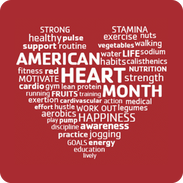 February is American Heart Month, and with recently published research indicating blood pressure has worsened in both men and women since the onset of the COVID-19 pandemic, it's important to use this month to get a blood pressure screening and focus on becoming heart healthy. Below are tips to help everyone become heart healthy this February.
The history of the YMCA - like the history of the United States - is a story of incremental progress toward greater inclusion and equity for all. As we celebrate #BlackHistoryMonth, we are honoring the stories of Black leaders who helped move the Y - and America - forward.
Anthony Bowen A former enslaved person and the first Black American to become a clerk in the U.S. Patent Office, Anthony Bowen founded the first YMCA for the Black community in Washington, D.C., in 1853, eight years before the Civil War. Additional Black Ys and college chapters were established in the following decades, with membership reaching 28,000 nationwide by the mid-1920s. William Hunton The son of a freed enslaved person from Canada, William Hunton began his Y work in 1888 as the first employed YMCA secretary at a "Colored YMCA" in Norfolk, VA. Hunton worked among the soldiers in the Army camps during the Spanish-American War and in developing Student YMCAs on Black campuses throughout the South. He helped communities meet Julius Rosenwald's challenge grant to build YMCAs for Black communities, and then helped recruit and train the staff and volunteers to lead those associations. Carter Woodson In 1915, at the Wabash Avenue YMCA in Chicago, Carter Woodson organized the Association for the Study of Negro Life and History, which researched and celebrated the achievements of Black Americans. This led to his starting Negro History Week, the precursor to Black History Month. Madam C.J. Walker An entrepreneur, philanthropist and social activist, Madam C.J. Walker was one of the first self-made female American millionaires. She escaped poverty and built a company selling hair care products, which also gave her sales agents an income of their own. Walker was a philanthropic supporter of the YMCA and participated in and financially supported the NAACP's anti-lynching movement. Jackie Robinson In 1947, Jackie Robinson broke the color barrier and became the first Black major league baseball player. This same year he also became a volunteer boys coach at the Harlem YMCA with fellow coach and teammate Roy Campanella. Leo B. Marsh In 1954, Dr. Leo B. Marsh became the first Black president of the Association of YMCA Secretaries. In 1971, Marsh brought the Black Achievers program (created by Quentin R. Mease at the South Central YMCA of Houston) to the Harlem YMCA. With the help of volunteer adult mentors, the Achievers program helps youth of color succeed and develop a positive sense of self. Jesse Alexander After starting his YMCA career as an outreach working with youth, in 1969, Jesse Alexander joined the National Council of YMCAs where he helped organize the National Conference of Black and Non-White Laymen and Staff, which dealt with supporting efforts to overcome racism in the YMCA and ensuring that YMCA organizations existed where communities of color wanted them. Violet P. Henry After holding various executive leadership roles in the Newark and Chicago YMCAs, in 1976, Violet P. Henry became the first woman to be named to a top management position at the Y's national office. She provided leadership for numerous national and international commissions and committees that worked for the rights of women and people of color. Kevin Washington In 2015, Kevin Washington became the first African American - and the first person of color - to serve as CEO of the YMCA of the USA. Besides reimagining a new service delivery system across the Y movement, Washington was a leading national voice for relief from federal government for nonprofits devastated by the COVID-19 pandemic. He spearheaded the highly successful #Relief4Charities effort, put Y-USA on a path to become an anti-racist, multicultural organization and engaged youth people as changemakers in their communities. Visit the YMCA Archives to learn more about the history of Black leadership in the YMCA. |

